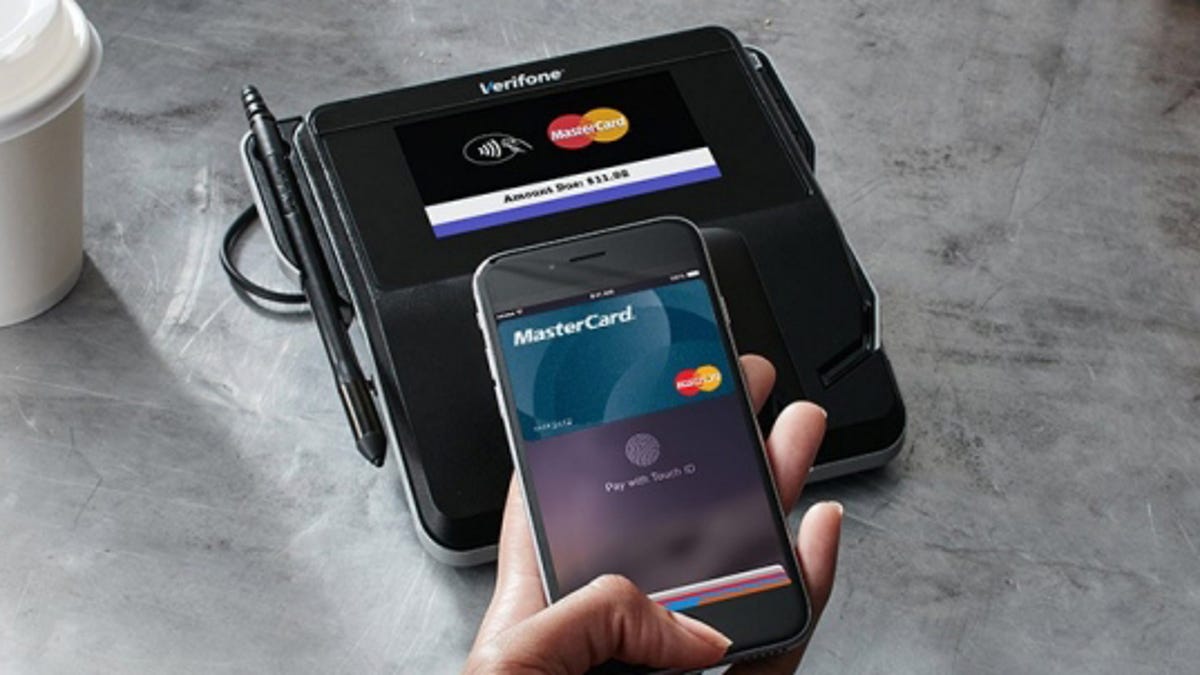ACCC to big banks: You can't 'collectively boycott' Apple Pay
The banks wanted to make their own iPhone payment apps, but Apple said this would "diminish security." Ultimately, Apple won -- but is it a win for consumers?

Apple Pay in action.
In a major decision that could change the way you use your iPhone at the checkout, the Australian Competition and Consumer Comission has ruled that Australia's big banks can't work together to "collectively boycott" Apple Pay.
Commonwealth Bank, Westpac, NAB, Bendigo and Adelaide Bank had been petitioning to collectively bargain with Apple in order to get access to Near-Field Communication technology on the iPhone.
NFC is the key technology that allows consumers to make quick tap payments at an EFTPOS terminal using their phone, just as they would with a tap-and-go credit card.
Currently, Apple users can add a compatible bank card to their Apple Wallet (from partners such as ING or ANZ) and make payments within the Apple ecosystem. But the banks were lobbying for NFC access to create their own third-party mobile payment apps, without relying on Apple Pay.
Ultimately it's come down to questions of convenience, competition and security for everyday Australians.
The banks argued that Apple's "high degree of control" over its service came at "the expense of user choice and competition." But for its part, Apple argued that giving more control to the banks would see security "fundamentally diminish".
The competition watchdog ultimately ruled in Apple's favour, handing down its decision after months of deliberation and maintaining the verdict it released in a "draft determination" on the matter in November last year.
Speaking about the decision, ACCC Chairman Rod Sims said the collective bargaining power would be "likely to reduce or distort competition.
"While the ACCC accepts that the opportunity for the banks to collectively negotiate and boycott would place them in a better bargaining position with Apple, the benefits would be outweighed by detriments," he said.
But the banks took a bigger view, saying they were "disappointed" with the result and then calling into question what Apple power would mean for the future of the mobile wallet in general.
"This case has always been about consumer choice," said financial industry spokesperson Lance Blockley in a statement on behalf of the banks.
"Mobile wallets are currently overwhelmingly focused on mobile payments, but will soon take in loyalty programs, mass transit ticketing, access, identity and a great number of other future innovations.
"[Apple] will use the beachhead into mobile wallets afforded to them by complete control over mobile payments on iPhone to exert control over the rest of the digital wallet. This in our view is aimed at increasing the services revenue they can earn from iPhone users."
For its part, Apple welcomed the decision.
"We believe the ACCC's decision is great for Australians who want the easiest, most secure and private payment experience possible with Apple Pay," said an Apple spokesperson. "We look forward to continuing to work with individual banks in Australia and around the world to bring Apple Pay to their customers too."

